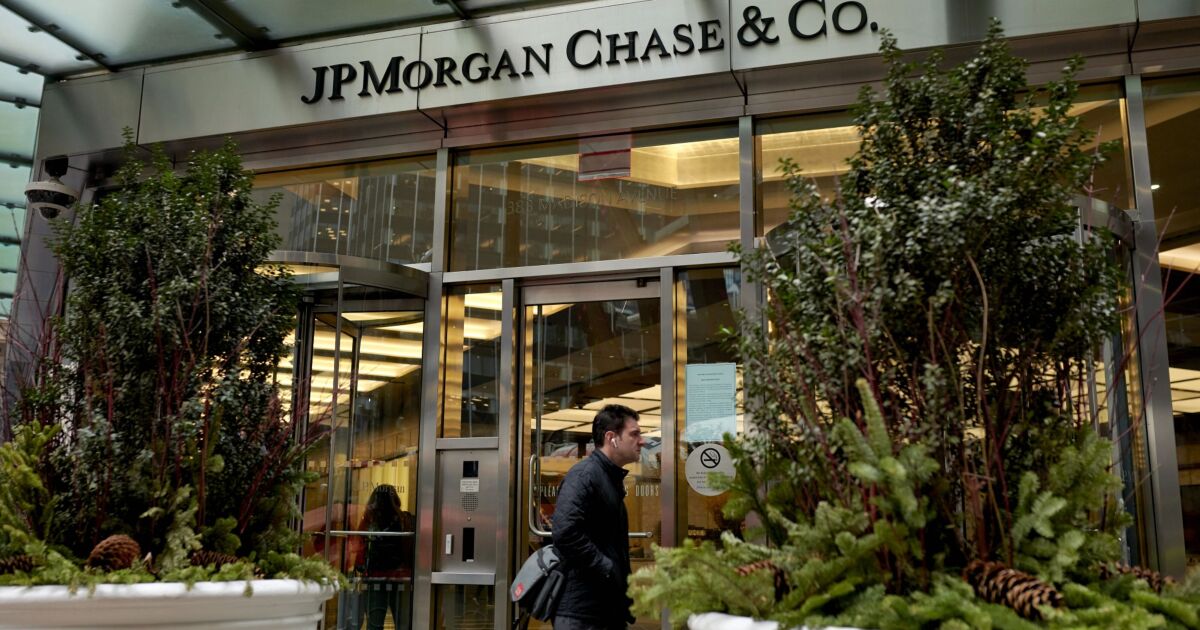This news is developing. Please check back here for updates.
JPMorgan Chase reported a steep year-over-year increase in credit costs Friday, as the largest U.S. bank by assets sought to cover a surge in net charge-offs and added $1 billion in reserves.
For the third quarter, the megabank's provision for credit losses more than doubled to $3.1 billion. Net charge-offs for the three months ended Sept. 30 were $2.1 billion, up 40% year over year and largely driven by card services, JPMorgan said. A year ago, the bank recorded a net reserve release of $113 million.
The majority of net charge-offs occurred in JPMorgan's consumer and community banking segment, which includes its credit card business. Net charge-offs in the segment totaled $19 billion, up $520 million from the year-ago quarter and driven by card services, the bank said.
Despite signals that the U.S. economy is improving, JPMorgan boosted its reserves for credit losses by $876 million. In a press release announcing the results, the company said reserve build was largely tied to card services, which experienced "growth in revolving balances and changes in certain macroeconomic variables."
Overall, the higher provision put a crimp in JPMorgan's net income, which was $12.9 billion, down 2% compared with the third quarter of 2023. Still, the company's earnings per share topped expectations at $4.37.
Analysts polled by S&P had expected earnings per share of $3.98.
Revenue for the period was $43.3 billion, up 6% year over year. The company's net interest income was a factor, up 3% for the quarter, while noninterest income rose 11%, the bank said.
Fee income included a 29% increase in investment banking revenues.
JPMorgan raised its guidance for full-year net interest income and full-year expenses. The company now projects net interest income will be about $92.5 billion for 2024, up from the forecast of $91 billion that it provided in July.
Full-year expenses, excluding legal fees but including an early special assessment by the Federal Deposit Insurance Corp. and a contribution to the firm's foundation, are now forecast to be $91.5 billion, about half a billion dollars less than what it laid out this summer.
Last month, at a conference, President and Chief Operating Officer Daniel Pinto warned that analysts' expectations for 2025 revenue and expenses are "not very reasonable," since lower interest rates would reduce interest income and inflation is keeping costs elevated.
Consensus estimates for 2025 include $90 billion in net interest income and $93.7 billion in expenses.
The day of Pinto's comments, the bank's shares fell by 7% at some points. The stock is currently up about 25% for the year.
In Friday's press release, Chairman and CEO Jamie Dimon commented on recent regulatory moves, saying, "We await our regulators' new rules on the Basel III endgame and the G-SIB surcharge as well as any adjustments to the SCB or CCAR. We believe rules can be written that promote a strong financial system without causing undue consequences for the economy, and now is an excellent time to step back and review the extensive set of existing rules — which were put in place for a good reason — to understand their impact on economic growth, the viability of both public and private markets, and secondary market liquidity."




